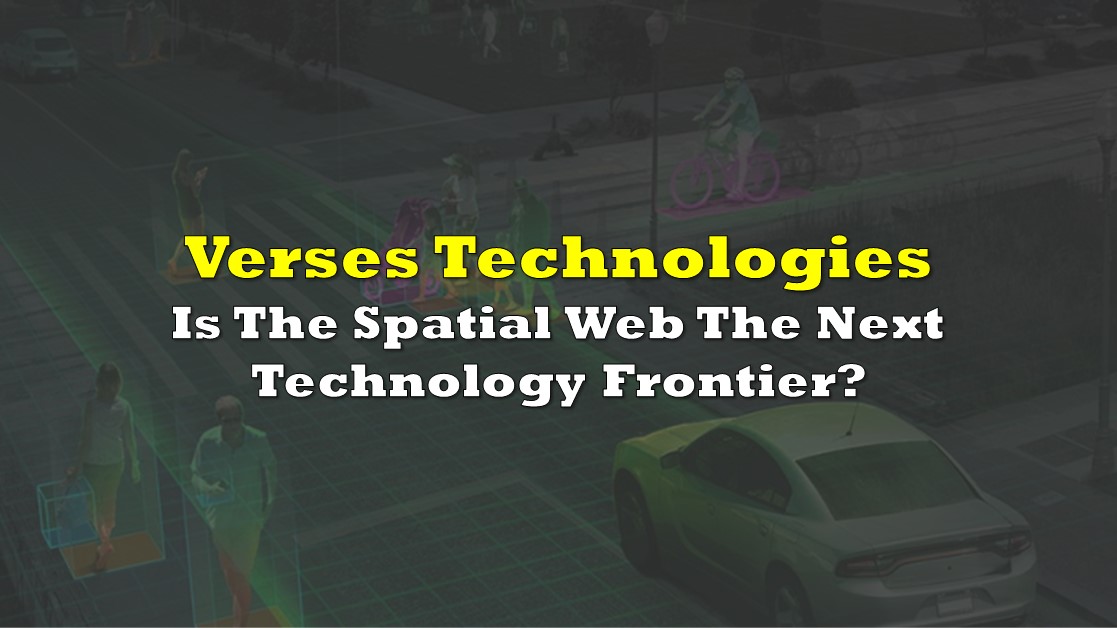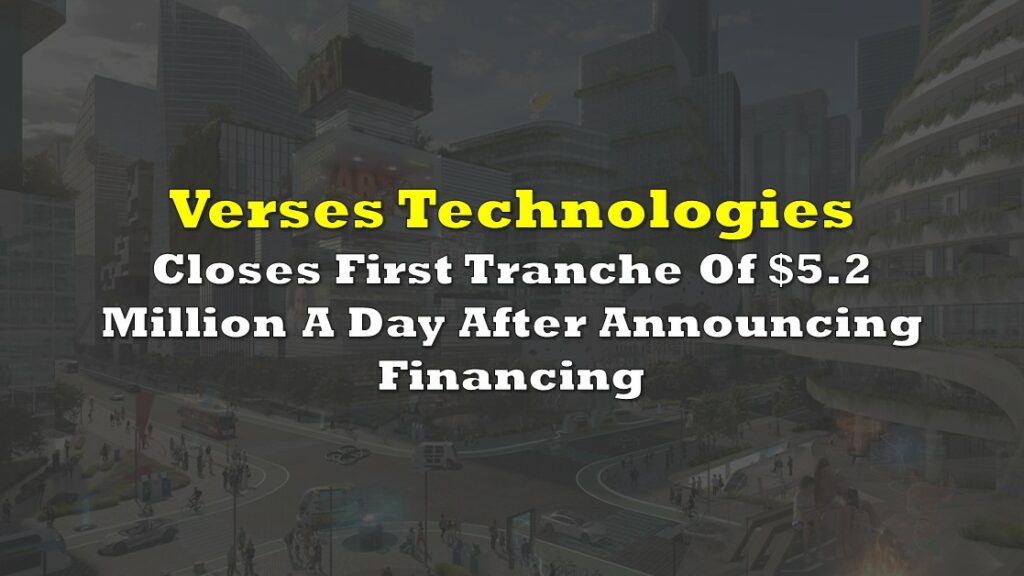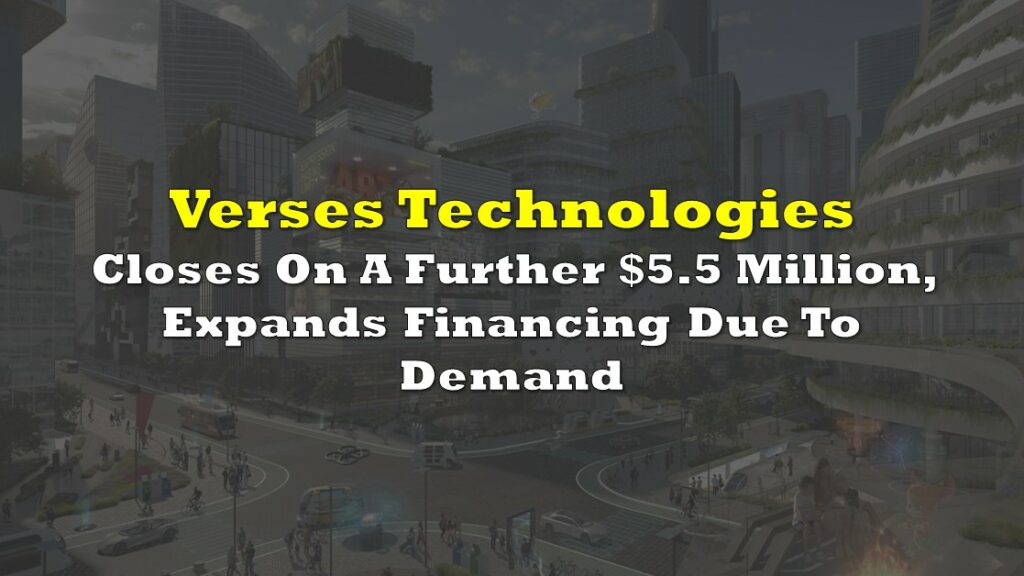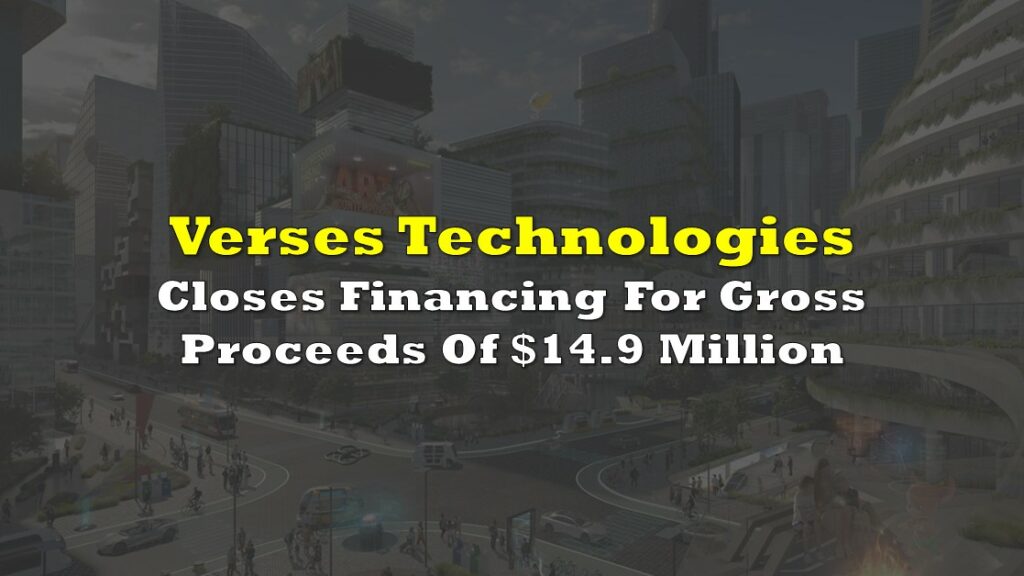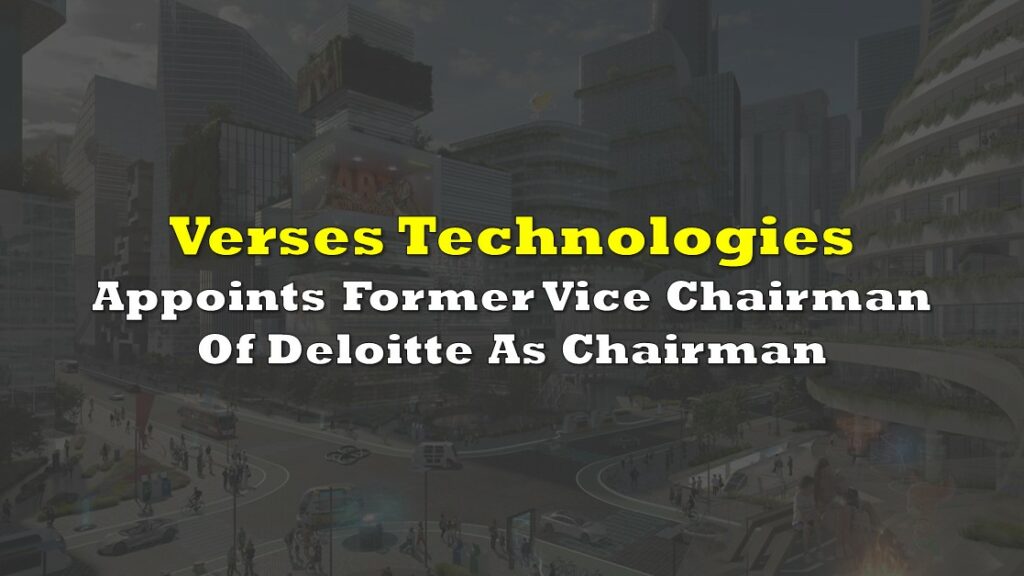Verses Technologies Inc. (NEO: VERS) is an innovative technology company, one that is developing next generation artificial intelligence-based (“AI”) business to business applications for Fortune 500 corporations. The company has created a proprietary COSM Operating System (OS) that provides application developers with the tools, language and architecture to build AI-based solutions for their companies.
COSM is the foundation for what Verses calls the ‘spatial web.’ It resides in the background, while enabling the convergence of all aspects of the digital technology spectrum; computing, data collection, storage, and management, wireless telecommunications, the Internet of Things (IoT), and the Internet itself. COSM accelerates next-generation application development and deployment, by helping manage location-based network-level resources such as identity, credentials, access control, context, compute, storage, bandwidth, and more on the spatial web.
How We Got Here
The advent of the personal computer changed the way mankind worked, communicated and played. Operating systems, such as DOS, IOS, and Windows, enabled the development of applications for almost every aspect of life, and computing became ubiquitous. The widespread growth of the internet, which was easily accessible from one’s computer, made the world smaller and interconnected, and digital networks enabled global collaboration on all levels.
Advances in mobile telecommunications resulted in the proliferation of mobile phones and other wireless devices, which evolved into smartphones; essentially handheld computers that can access the internet and enable users to engage in almost any aspect of life; work, finance, entertainment, health, education etc. These are powered and enabled by the mobile computing operating systems that make this possible. All of this activity generates incredible amounts of data in real time, across the globe. Added to this mix is the growth of virtual reality, augmented reality, edge computing, machine learning and artificial intelligence, which utilizes data, learns from it, moves it around, and stores it.
Why We Need The Next Evolution of Technology
All the disparate sources of data and information, movies, podcasts, videos, music, photos, virtual reality, augmented reality, IoT devices and much more, tend to be centered in their own ecosystems. Therefore, they usually require many independent programs and methodologies to manage this information. And often these programs have their own languages and syntax that must be somehow cobbled together in order to work together. Large corporations as well as consumers therefore need many specific programs and tools in order to access what they need. This can be cumbersome and costly in terms of time, money, productivity, and convenience.

The Spatial Web And Its Operating System, COSM
The spatial web, and its operating system, COSM, provides the means to seamlessly access many of these sources of data and information through AI-based applications, and to utilize them in real time. COSM was developed as an AI operating system to utilize contextual computing, which is based on natural systems and design principles of the human brain and the human experience. It will enhance any application with adaptive intelligence, which can then analyze and anticipate any dimension of data that can be measured and tracked.
READ: Verses Tech Launches Research Facility For Sensor Fusion
COSM was designed and built on open standards to be hardware and software agnostic, and for context-aware information and activities to be collaboratively shared between dynamic plug-and-play networks of devices and applications across digital and physical domains. COSM incorporates AI and machine learning to transform disparate data into a universal context that fosters trustworthy collaboration between humans, machines, and AI, across digital and physical domains. This should also create new and intuitive ways of using the data.

An Operating System
Each generation of computing was dominated by an operating system that helped streamline application development and resource management. Windows had 1.5 billion users. The proliferation of mobile computing was accelerated by operating systems, such as Android or IoS, which enabled the development of applications for every aspect of human activity on 2.5 billion users’ devices.
COSM was designed as the operating system for the artificial intelligence-based contextual computing era. It provides users with the application development tools and computer language protocols to generate a unified intelligent network of contextualized data, policies, simulation models, and workflow automations that can be shared within and between organizations. The usage case for AI-based applications is virtually limitless – and the potential market size could exceed $1.39 trillion by 2029.

For investors, the spatial web could represent the “next big thing,” since the market for AI-based applications is limited only by the extent of the human imagination. But for any technology or concept to become a feasible reality, it must have customers ready to implement it.
The Initial Target Market and Application
Verses Technologies has identified the supply chain as its initial target market, specifically logistics warehouses. The company has developed its proprietary flagship “WayFinder” order picking application, which is a handheld device powered by the COSM OS. Warehouses represent a microcosm of a small city, with many moving parts that must act in concert to fulfill their customer orders in a timely and efficient manner.
WayFinder enables the optimization and automation of task-based operations in logistics heavy environments, such as warehouses and retail locations. It improves the use of space and the flow of assets in it, via highly contextualized predictive intelligence and AI-assisted modeling and routing. By using a spatial model of the warehouse, WayFinder directs order pickers to exact locations within the 3-D space through visual and/or audio instructions.
It can be used in a variety of contexts, such as coordinating human activity alongside autonomous robots and drones for task optimization. It can also be supplemented with augmented reality glasses. The WayFinder app reduces the cognitive load for workers and requires very little training time, while improving labour management for employers.
Verses is currently in an advanced pilot program with a major logistics management company, NRI Distribution, which has experienced a 30% improvement in productivity due to WayFinder. As such, NRI has placed a 6-year order for US$9 million, with a US$17.5 million renewal option for a potential total of USD $34 million. This is a major endorsement of the WayFinder application within the logistics space, and can serve as a reference account for future business development within the supply chain sector. The company also has a variety of ongoing pilot programs for facilitating Smart Cities, Smart Mobility, Smart Health, Smart Factories, and Smart Supply Chain.

The Share Structure
Verses Technologies has an interesting capitalization structure, one that gives the two Founders a dominant control position. The firm has 55.6 million subordinate voting shares outstanding, and a current market capitalization of $36.7 million based on this figure.
Founders, CEO, Gabriel Rene and President, Dan Mapes, own 10 million proportionate voting shares. With an assumed conversion of this share class, one would need to add an additional 62.5 million shares to the outstanding share count, bringing the total fully diluted share count to roughly 118.1 million.
Verses is well capitalized to continue to expand its business development activities. On August 29, 2022, Verses Technologies announced the closing of its $14.9 million financing, which was expanded from an initial $10.0 million as a result of strong demand. The financing saw units sold at $1.00 per each, with units containing one subordinate share and one half of a purchase warrant, which is valid through to August 15, 2025, and contains an exercise price of $1.20 per each.
The Management Team
The company has an excellent management team, with extensive experience in artificial intelligence, IoT, robotics, VR/AR, enterprise software and global sales. And the scientific research and development team consists of some of the world’s leading scientists and academics in probabilistic model-based inference artificial intelligence, with a special focus on real-world applications.

The company’s new Chairman of the Board, Jay Samit, is one of the world’s leading and sought-after experts on disruption and technology innovation. Samit is the former independent vice-chairman of industry giant Deloitte Consulting, and has served in several notable roles, including assisting the startup of LinkedIn, and senior roles at Sony, EMI, and Universal Studios. He brings invaluable guidance to the company’s growth, as well as adding a healthy chunk of credibility to their aspirations.
In Closing
As with any technology company, unless their products gain market acceptance, they are simply just cool tech. With a current lead order that validates its WayFinder application, Verses now has all the indications of becoming a market leader in artificial intelligence applications. And by providing the operating system for other developers, they can be seen as not a direct threat to other companies in the AI space, but as an enabler helping all industry participants succeed.
FULL DISCLOSURE: VERSES Technologies is a client of Canacom Group, the parent company of The Deep Dive. The author has been compensated to cover VERSES Technologies on The Deep Dive, with The Deep Dive having full editorial control. Not a recommendation to buy or sell. Always do additional research and consult a professional before purchasing a security.

